Detecting Bull$%#!
There's a lot of fluff adjacent to psychology that exploits our longings for certainty, success, and hope. That would be fine if it were all harmless, but it’s not.
By Laith Al-Shawaf Ph.D. published March 8, 2022 - last reviewed on August 8, 2022
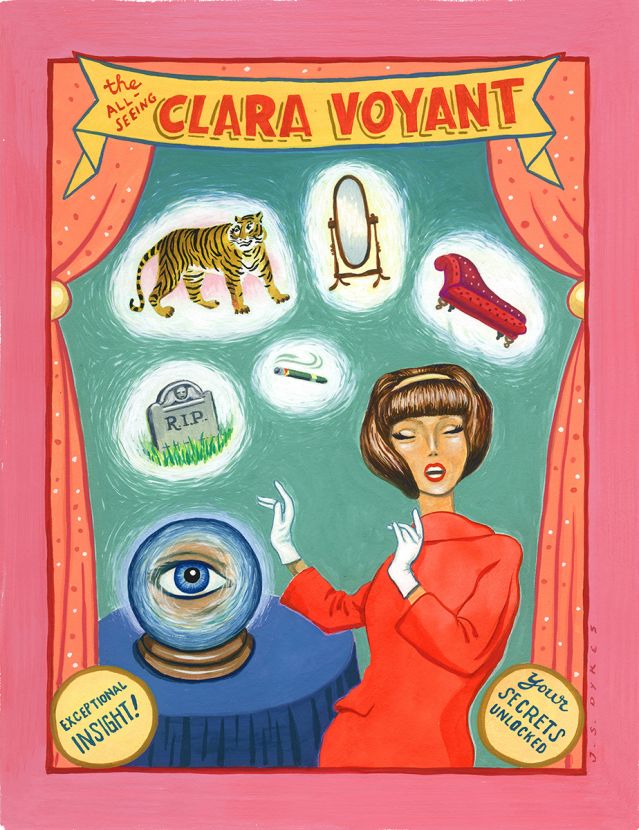
Psychology is the science of mind and behavior. It has nothing to do with astrology, psychics, or New Age mysticism. But many smart people who are drawn to psychology are sometimes also drawn to psychological-sounding woo. Maybe it makes sense: There is topic overlap between psychology and these fields—for example, questions about the connection between mind and body or the nature of personality, as well as a desire to improve one’s health and well-being—and people who are interested in how the mind works are often open to multiple perspectives.
But there’s also a big gulf between these areas of inquiry: Psychology is a science, meaning that it requires evidence gathered according to strict and well-defined rules, whereas astrology, The Secret, and homeopathy are pseudosciences that enjoy no empirical support. Should we be concerned that people drawn to psychology are often drawn to other fields that share some content overlap but lack rigor?
So What?
Maybe it doesn’t matter. Some say these beliefs are fringe and mostly harmless—and besides, few people believe this stuff anyway. But polls suggest the opposite: Most of us aren’t completely tethered to reality.
A Gallup poll from 2005 shows that 73 percent of Americans have at least one paranormal belief, and an Ipsos poll from 2019 found that almost half of Americans believe in ghosts. Research from the National Science Foundation shows that a variety of pseudosciences enjoy wide appeal in public society.
Woo, however, is not harmless; it literally kills people. The website What’s the Harm? has tracked a third of a million cases of people who died because of woo and another third of a million who were injured—from vitamin megadoses, “psychic surgery,” refusal of real medicine, and dangerous detoxification programs. Has Carl Sagan’s famous foreboding—about an America in which, clutching our crystals and consulting our horoscopes, we fail to distinguish between what feels good and what’s true—come to pass?
The landscape is littered with attractive but empty psychology-adjacent ideas, ideas that address the same human longings for certainty, for success, for hope that psychology does.
The woo industrial complex is harmful to our health. But make no mistake: The cognitive loopholes and biases that make us woo-prone are a human universal. We all struggle with them; absolutely nobody is immune to these human foibles. The great hope of psychologists, however, is that exposing these beliefs and the cognitive fault lines they rest on might help us become more vigilant to the claims people make about how the world works. Here are five popular hotspots in the world of woo.
Astrology
Penny: “I’m a Sagittarius, which probably tells you way more than you need to know.”
Sheldon: “Yes, it tells us that you participate in the mass cultural delusion that the sun’s apparent position relative to arbitrarily defined constellations at the time of your birth somehow affects your personality.” —The Big Bang Theory
Astrology is the belief that the position of celestial bodies at the time of your birth influences your personality and life course. Here are five reasons why this is nonsense.
First, empirical tests of astrological predictions show that they don’t work. A meta-analysis of more than 40 controlled studies shows that expert astrologers perform no better than chance, even at predicting basic personality traits such as extraversion. Double-blind tests clearly show that astrological predictions are not supported by the evidence.
Second, there is no known mechanism by which the planets could influence your personality.
Third, in case you’re thinking it has to do with gravity, it doesn’t. The gravitational pull of the doctor in the room at the time of your birth was stronger than the gravitational pull exerted on you by the planets in our
solar system at that same moment.
Fourth, for astrology to be correct, it would have to negate pretty much everything we know about physics and psychology.
Fifth, and finally, there are good reasons to think that belief in astrology is driven by a combination of cognitive biases (such as myside bias, which is the tendency to notice and remember only those facts that agree with what you already believe) and ambiguous writing, such as Barnum statements, which are vague statements that appear to apply perfectly to your life but are purposely written to be so broad that they could apply to anybody. There’s no bona fide connection between the planets and our personality—causation just doesn’t work that way.
Keep in mind that as humans, we have a tendency to see patterns even where there aren’t any. Our minds are “promiscuous pattern detectors,” as some researchers put it. In fact, detecting patterns is an important part of what it means to be human—during the evolution of our species it was key in helping us stay alive and solve problems.
But we are prone to false positives, and this vulnerability in our neurological makeup can cause problems. We frequently see meaningful patterns in meaningless noise. This leads us to think that fields like astrology and homeopathy are describing the world accurately when in reality their misses vastly outnumber their hits—we just don’t notice the misses or encode them in memory because they’re less attention worthy.
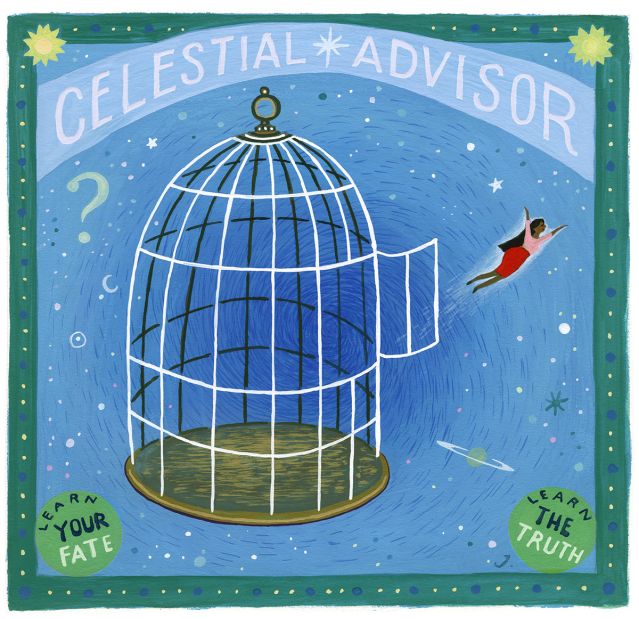
The Myers-Briggs Personality Test
The Myers-Briggs Type Indicator is the most popular personality test in the world. Alas, it offers inconsistent results, doesn’t predict life outcomes, and is based on empirically unsubstantiated ideas. The Myers-Briggs Company contends that “the MBTI assessment is designed to be descriptive, not predictive,” but it is used widely to predict workplace behavior.
It also ignores crucial personality variables such as neuroticism, a personality trait that describes how disposed a person is to negative emotions like sadness, anxiety, and feelings of vulnerability. Ignoring neuroticism is a key failing because studies show that this personality trait predicts a range of life outcomes: for example, a person’s likelihood of divorce, of having a psychological disorder, or of becoming addicted to substances—even how long someone will live (on average, of course; there are numerous other factors at play).
Neuroticism exists in all human cultures around the world. It is even present in nonhuman animal species.
If it has all these shortcomings, why is the Myers-Briggs so popular? It’s difficult to say for sure, but there are some candidate reasons: The test is easy to take and administer. The results are easy to calculate and interpret. The test has solid advertising and money backing it. As in the case of its ignoring neuroticism, the Myers-Briggs tactfully avoids telling the test-taker anything negative.
And some evidence from psychology hints that we appear to be cognitively disposed to think in terms of dichotomies rather than of continua. For example, thinking categorically—that a person is either introverted or extraverted, either neurotic or emotionally stable—is more intuitive and less cognitively taxing than mentally simulating a continuum with an infinite number of points on it. Unfortunately for accuracy, we tend to prefer simple type-based models with easy labels over more nuanced continuum-based models.
Homeopathy
Homeopathy is based on the ideas that “like cures like” and that diluting substances increases their potency. (Yep, this one’s pungent. Dilutions of grandeur, anyone?)
Controlled studies show that homeopathy fails to outperform placebo. The claims of homeopathy contradict vast swaths of physics, chemistry, biology, and medicine (and you know those sciences work because they cure our infections and give us computers).
And evidence shows that the central tenets of homeopathy—for example, that like cures like and dilution increases potency—are just plain wrong. Belief in homeopathy appears to be driven by the placebo effect and expectancy effects—effects generated by what the patient expects to happen after receiving
treatment.
That reminds me: Have you heard the joke about how “double-blind” studies work in homeopathy? You do the study, and then you don’t look at the results...twice!
It might be easy to laugh if homeopathy were innocuous nonsense, but it’s not—it’s dangerous nonsense. Homeopathy kills people every year by steering them away from real treatments.
For example, a 2018 study found that cancer patients who chose homeopathic treatments had a two-fold greater risk of death than those who avoided homeopathic treatments. Rising awareness of such dangers has led to positive developments like the European Manifesto Against Pseudo-Therapies, which documents how many people these “treatments” have inadvertently killed.
It’s worth pointing out that some beliefs or treatments may begin as “alternative” or unconventional treatments but move from the land of woo to the land of accepted, conventional wisdom if studies show that they actually work. This is just science working normally.
Science is not about declaring by fiat that some treatments are acceptable and others are not; it’s about testing hypotheses to see whether they stand up to empirical scrutiny. If they do, they are welcomed into the fold and added to conventional medical treatments. For example, to some extent this has happened with meditation. Some studies suggest it can be beneficial for anxiety and depression, and it has been incorporated into some conventional medical treatments (despite some mixed findings).
If ideas don’t stand up to empirical scrutiny, they are rejected. It’s really critical to realize this: The claim that homeopathy is bullshit is not based on territorial gatekeeping by old men in white lab coats. It’s based on the fact that studies clearly show that homeopathy doesn’t outperform placebo, and worse still, it actively increases people’s risk of death. It’s good to be open-minded, but not when false advertising is killing your loved ones.
As the famous quip goes: It’s good to have an open mind, but if you open your mind too much, your brain might fall out.
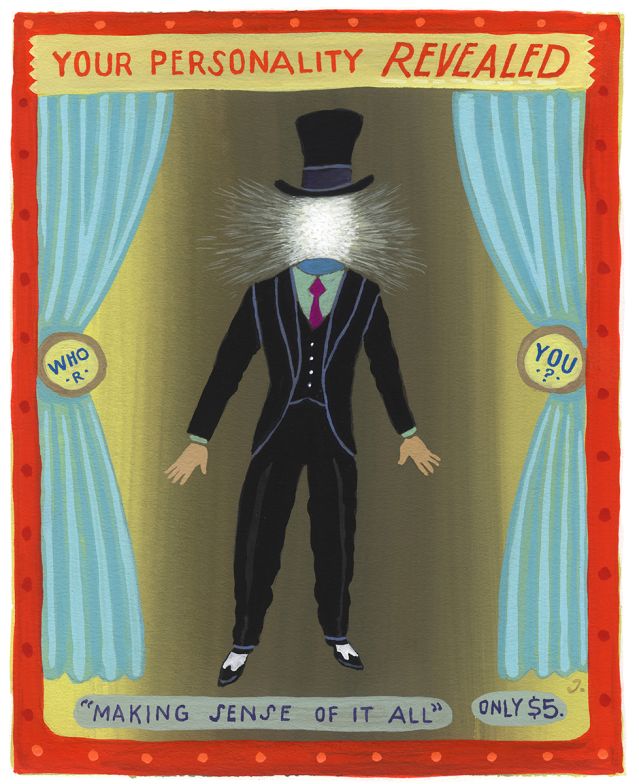
The Secret
Ah, The Secret, a bowl-you-over-with-bullshit kind of book that has been translated into 50 languages and has sold more than 30 million copies around the globe. Written by Australian TV producer Rhonda Byrne in 2006, it is based on the “law of attraction,” which claims that thoughts can magically attract certain kinds of experiences into your life.
The book is founded on the idea that positive visualization will make good things appear in your life. It implies, however, that if your life is beset by misfortune and misery, you’re bringing it on yourself by not thinking positively. Like many other brands of woo, it butchers concepts like “energy” and misuses quantum physics—for example, by badly misrepresenting the observer effect in the collapse of the wave function—to advance its claims.
In fact, misrepresenting quantum physics almost seems to be a prerequisite for peddling psychology-adjacent woo. If you plan to spout vacuous bullshit and you want it to sound quasi-intellectual, you’re going to have to misappropriate some quantum physics!
There are probably two things going on besides the field’s imprimatur of authority and scientific respectability. First, peddlers of bovine stercus benefit from the specialist nature of quantum physics and the obscurity of its principles. If readers don’t know much about the field, it’s easier for quacks to misrepresent its findings and axioms.
Second, quantum physics is genuinely weird—take, for instance, action at a distance, quantum superposition, and Heisenberg’s uncertainty principle. Intellectual mountebanks exploit this weirdness, implicitly telling us that if things this profoundly bizarre are supported by science, then why not vision boards and the law of attraction and the power of chakras to cure your cancer and make your wildest dreams come true? Like many other varieties of woo, The Secret makes a business out of selling false hope, and it glibly misuses quantum physics to do so.
As Benjamin Radford and Mary Carmichael point out in The Skeptical Inquirer, the doctrine of The Secret also has an ugly flip side: If you’re poor or diseased or suffer from a psychological disorder, it’s mostly your fault. You didn’t think the right thoughts. You didn’t put the right energy out into the universe. You stupid, blameworthy schmuck.
Psychics, Mediums, Soothsayers, Clairvoyants & Psychokineticists
This, ladies and gents, is the NBA All-Star team of bullshit.
Bilking people out of their money in exchange for false hope is nothing new, of course. Con artists have been preying on people’s vulnerabilities for a long time.
In their day, debunkers like Harry Houdini and The Amazing Randi did an excellent job of unmasking con artists. They were famous magicians, but they also enjoyed successful careers as debunkers of psychics, mediums, and other frauds.
The Amazing Randi was a superb stage illusionist whose skills at conjuring were surpassed only by his facility for exposing frauds. Like many good magicians, he understood that the act of deception, whether done legitimately (as in magic) or illegitimately (as among psychics and other hucksters), is primarily about psychology. It’s about attention and misdirection and expectation—and sometimes, a need to believe.
The careers of Harry Houdini and James Randi involved an interesting juxtaposition: Magic is fundamentally about deception, but these practitioners combined a passion for magic with a passion for debunking tricksters.
The subject of the documentary An Honest Liar, Randi established the Committee for Skeptical Inquiry and an educational foundation. In 1986 he was awarded a MacArthur Foundation Fellowship—a so-called “genius grant”— which he used primarily to investigate and expose the fraudulent practices of faith healers.
The distinction between magicians and spiritualists is that the former are honest about the fact that they plan to deceive you. They transparently and unabashedly call themselves “illusionists.” In stark contrast, psychics and mediums don’t admit that they deal in deception—they would be ruined if they did.
They claim to have supernatural or paranormal powers, and they take people’s money in exchange for things they can’t actually do—such as predicting the future based on cards or crystals or tea leaves. Convincing grieving parents to part with their hard-earned cash so they can “talk” to their dead child? That’s not just a regular fraud, it’s a callous, predatory one.
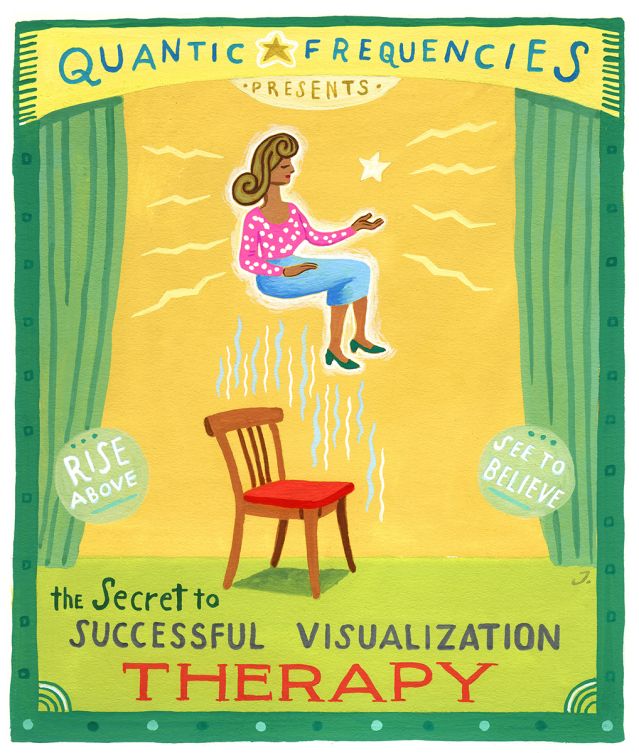
Missing the Point of Psychology?
Are you a fan of psychology who believes in some of this woo-woo? If so, there is a sense in which you’re missing the animating spirit and methodological backbone of the discipline.
The progress of psychology—or, one might argue, the point of psychology—is to explain the human mind in a natural way, one that does not rely on entities or forms of causation for which we have no evidence.
Psychology succeeds precisely to the extent that it’s able to naturalize the mind and bring it under the purview of science. We make explanatory progress by investigating the mind empirically, not by “explaining” away its remarkable feats by reference to agents and spirits for which we can’t find any scientific evidence.
The goal of psychology is a grand one: to understand the mind in all of its beautiful weirdness—déjà vu, the placebo effect, nervousness-induced itch, false memories, synesthesia, phantom-limb pain, lucid dreaming, near-death experiences—in a fully natural way that doesn’t violate any known laws of the universe, doesn’t rely on miracles, and doesn’t postulate entities that aren’t needed to explain the phenomena at hand. If you let in spirits or divination or personalities forged by planetary pulls, you’ve given up before the game really got started.
The good news is that it’s never too late to begin thinking of the mind this way. Your brain is an organic, wet computer that obeys the laws of physics and was shaped by the blind algorithmic process of evolution. Come on over to the dark side! You won’t miss the woo-woo that much, I promise. There’s awe and grandeur in this naturalistic view of the mind.
(Plus we have cookies.)
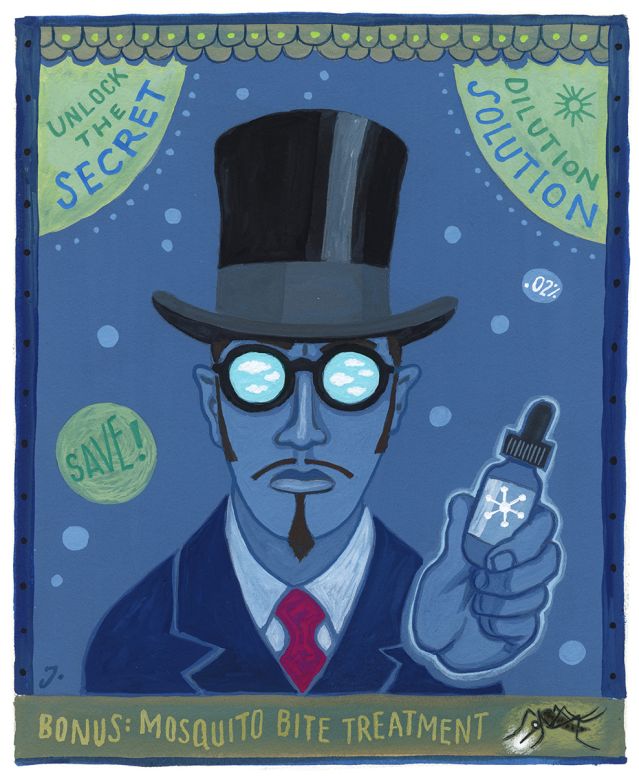
The Takeaway
Please remember: In evaluating claims about the mind, anecdotes don’t count. All the evidence we adduce has to be guaranteed kosher—untainted by confirmation bias, not driven by the placebo effect, free of the million other mistakes we make when we try to comprehend the world with our fallible, meaning-hungry minds.
This is why we can’t count evidence that comes from personal anecdotes rather than rigorous studies with the proper scientific controls. It may sound a bit harsh, but adding personal anecdotes filtered through our cognitive biases is just adding zeros.
In service of understanding the world, psychology is wedded to the principle that if it isn’t supported by systematic evidence or isn’t really required to do the explanatory work, we just don’t need it. As Douglas Adams once wistfully remarked, “Isn’t it enough to see that a garden is beautiful without having to believe that there are fairies at the bottom of it too?”
If our goal is to understand the mind, we should leave the phantoms and the wishful thinking aside. We don’t need them, and we’ll be fine without them. There’s more than enough majesty and awe in the natural world.
Laith Al-Shawaf, Ph.D., is an associate professor of psychology at the University of Colorado, Colorado Springs.
